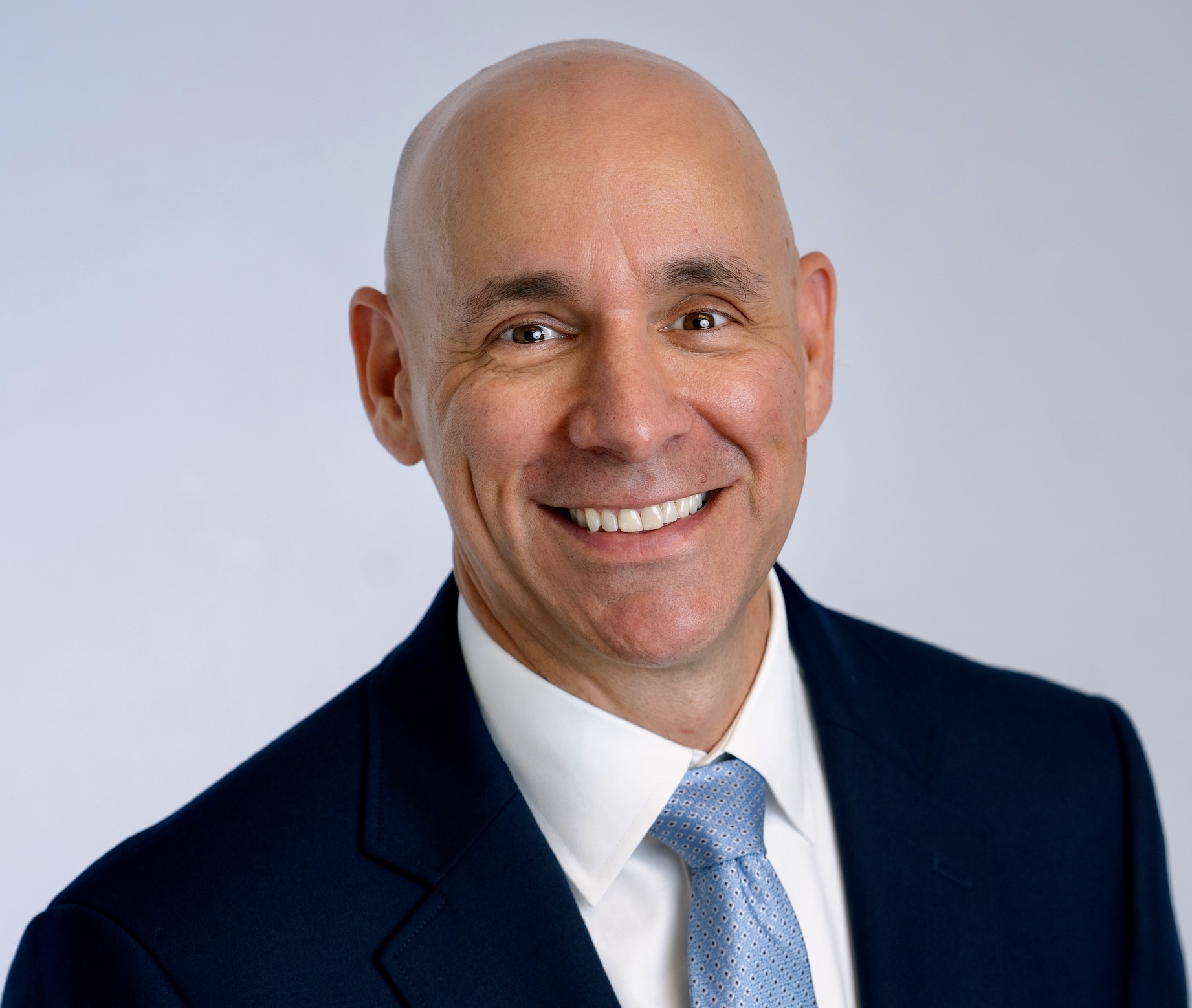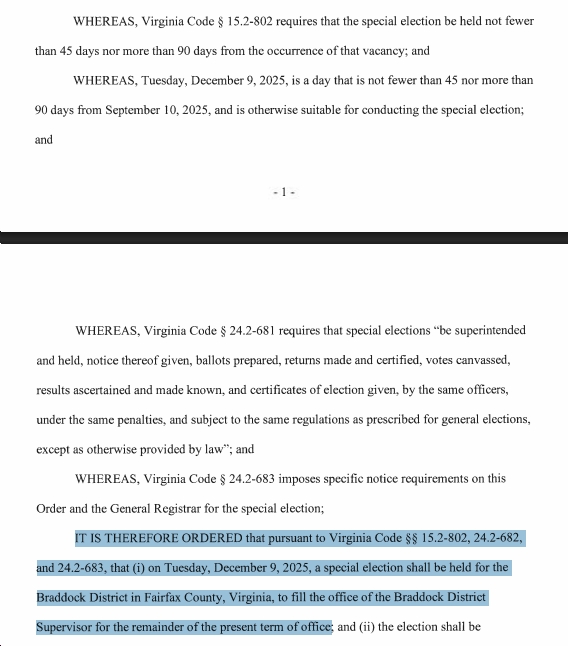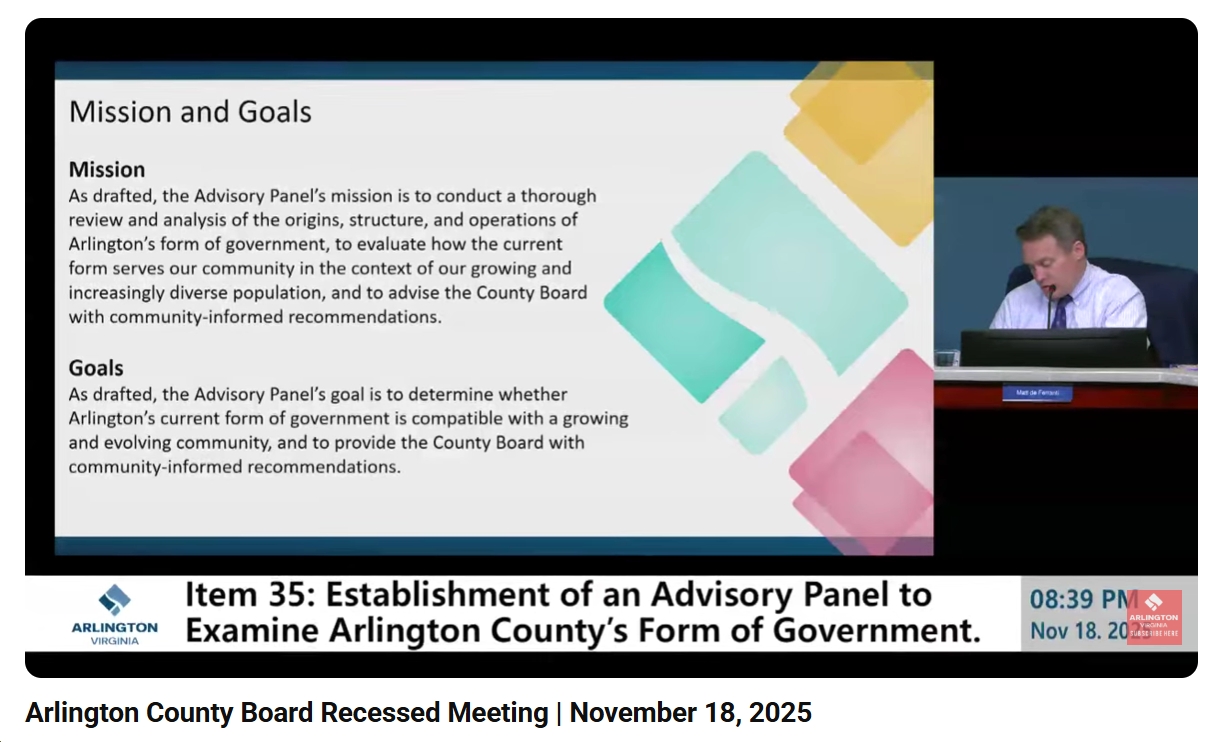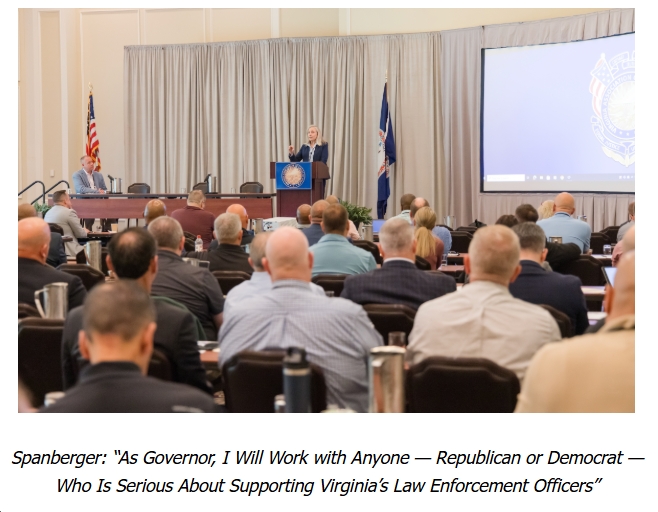by John F. Seymour – a long-time resident of Arlington, Virginia and a Democratic co-precinct captain of the East Falls Church precinct
The standing-room only crowd of Democratic activists and party leaders packed into Busboys and Poets cafe in Arlington’s Shirlington Village on a grey January morning might be forgiven for thinking that the temperature in the restaurant felt chillier than outside.
The cafe was host to the Arlington Democrats’ regular Second Saturday Breakfast, and featured the first debate for the position of Commonwealth’s Attorney for Arlington and Falls Church. The incumbent, Parisa Dehghani-Tafti, is seeking a second four-year term. Her challenger, Josh Katcher, is an 11-year veteran of the office who worked under both Ms. Dehghani-Tafti and her predecessor, Theo Stamos (whom Ms. Dehghani-Tafti defeated narrowly in a Democratic primary in 2019). The two candidates are competing for the Democratic nomination, which will be decided at a party primary on June 20th.
The debate was frank and honest, although to an audience accustomed to both careful consensus and good grace in intra-party disputes, it also seemed unusually detached from party loyalties and, at times, tested the very boundaries of civility.
Two Progressives: In her opening remarks, Ms. Dehghani-Tafti underscored her progressive bona fides by reciting a long list of initiatives she had started, or expanded, during her tenure — elimination of cash bail, refusal to prosecute simple possession of marijuana, refusal to prosecute doctors and patients for their health care decisions, elimination of peremptory strikes during jury selection, expansion of mental health and drug diversion programs, endorsement of the new civilian review board, and establishment of a restorative justice program, among other criminal justice initiatives. Together, she said, those reforms had resulted in a significant decline in the jail population while freeing up resources to focus on serious crimes.
When asked how he differed with Ms. Dehghani-Tafti on policy, Mr. Katcher conceded that he shared her vision. Like Ms. Dehghani-Tafti, Mr. Katcher characterized himself as a progressive and pledged to oppose the death penalty and cash bail. Nevertheless, Ms. Dehghani-Tafti questioned Mr. Katcher’s historical commitment to progressivism because, as a staff attorney, he had “carried water for a [prior] administration” that pursued reform half-heartedly. She chastised Mr. Katcher for his actions when working under Theo Stamos, where he did, according to Ms, Dehghani-Tafti, support the death penalty on occasion as well as cash bail, and questioned whether his past decisions in the office truly reflected the “courage of his convictions.”
Mr. Katcher’s response — posed to the audience — asked whether any of the attendees had, in their careers, worked under different administrations with philosophies and priorities that they might not fully share. Given the audience at hand— with a large number of current and former federal government workers who had — with different levels of enthusiasm and accommodation —survived numerous Republican administrations with their consciences intact, that question seemed to strike home.
Sparring on Management Issues: Mr. Katcher’s principal critique of Ms. Dehghani-Tafti’s tenure was not with her vision. Rather, it was his very strong and repeated belief that the office was not executing her vision competently. Mr. Katcher recited his own list — excerpts from Circuit Court opinions criticizing the office and staff attorneys for a range of professional failings, including failures to properly disclose evidence to the defense, “blatant misrepresentations” to judicial officers, and overall “sloppy and unprofessional” legal work. Mr. Katcher also excoriated Ms. Dehghani-Tafti for managing an office where a majority of the staff attorneys have resigned, or have become deeply alienated under her leadership, because of under-staffing and lack of support and “being asked to do the impossible.” He complained that, during the past few years, the “reputation of the office” had been stained and badly needed restoration. He expressed his ultimate fear that “failure of management will be seen as failure of [criminal justice] reform itself.”
Ms. Dehghani-Tafti acknowledged some current staffing and retention difficulties, but noted that the National Association of Attorneys General had itself documented the same retention and hiring problems in local prosecutors’ offices nation-wide, as they grapple with substantial caseloads, suffer burn-out, and navigate the additional stress of the COVID epidemic. In addition, she pointed out that she has fought for and obtained additional resources from the county, including enhanced pay for staff attorneys and also emphasized that, during her stewardship, she had introduced a number of long-deferred management improvements (electronic discovery, data security measures, upgraded technology) to modernize, improve, and expedite work-flow.
What many attendees found most frustrating, I suspect, is that those outside the office culture (like nearly everyone in Arlington) have no way to evaluate, much less confirm or refute, Mr. Katcher’s key “competency” criticisms of the office and its management.
Sparring on Policy/Trial Work: Although Mr. Katcher prefaced some remarks by saying “this is not personal” (a phrase that almost always signals that something is deeply personal), he claimed that Ms. Dehghani-Tafti was “diverting attention from her management failings” by focusing on broad policy and legislative reforms, rather than on direct assistance to staff attorneys, including trying cases herself. Mr. Katcher repeatedly highlighted his decade or more of trial court experience, both misdemeanor and felony, as essential training for a capable and effective lead prosecutor. Daily work “in the trenches” was, according to Mr. Katcher, a critical skill and essential to engender trust and confidence among less experienced staff attorneys and a fuller understanding of the court system and individual judges.
Ms. Dehghani-Tafti refused to respond directly to Mr. Katcher’s invitation to debate the question of “who is a trial lawyer,” but did mention her considerable appellate experience and hands-on work with staff attorneys on case preparation and overall case-load management.
Sparring about Independence from/Cooperation with Law Enforcement: One question from the audience noted that, in her last campaign, Ms. Dehghati-Tafti’s opponent (Theo Stamos) had been endorsed by various Arlington and Falls Church police associations. The questioner noted that the criminal justice system functions best with close cooperation and mutual respect among prosecutors, judges, police, and the defense bar, and asked how those relationships might be strengthened. Ms. Dehghati-Tafti commented that she has maintained good working relationships with her counterparts in other offices but stressed the need for prosecutors to maintain and preserve their absolute independence, irrespective of public criticism. It’s important, she insisted, that the office not be seen as “buddy-buddy” with the police to avoid any appearance of impropriety or bias.
Mr. Katcher’s response was quite different, cautioning that the office cannot achieve its ultimate goal of crime reduction if it is “at war” with the police. Re-emphasizing his trial court experience, he expressed his conviction that trust and respect can be earned through working closely with officers. Law enforcement officers are not, Mr. Katcher insisted, opposed to the office’s reform efforts, if those efforts are clearly and respectfully communicated.
Law and Order?: Although Mr. Katcher’s campaign materials and appearances have, at times, referenced what he describes as troublesome “rising crime” in Arlington, he made no mention of the crime rate on Saturday. That probably was wise. The most recent data from the Arlington County Police Department on that issue are not perfectly clear. Although the rate of some crimes has increased, particularly during the COVID epidemic, Ms. Dehghani-Tafti has pointed out that crime is not, overall, trending upwards; that the rate of some offenses has, in fact, declined; and that Arlington’s overall crime rate remains well below state and national averages.
None of the questions from the audience probed that issue, with good reason. Arlington Democrats as a whole do not want a repeat of the bruising and highly divisive battle between long-time Commonwealth’s Attorney Theo Stamos and Ms. Dehghani-Tafti in 2018-19 that was characterized, simply and unfairly, as one between an “overly zealous” prosecutor and an “excessively lenient” former defense attorney. And an audience at an Arlington Democrats forum, in particular, would not have been sympathetic to a strong “law-and-order” message from a candidate for Commonwealth’s Attorney. Many of them remember all too well how effectively the “law-and-order” theme has been used in American politics as a way to tap into voters’ fears about race — a favorite campaign theme of Republicans since it was first invented and exploited by the Nixon Administration.
The two candidates know each other well. After all, only two years ago, Ms. Dehghani-Tafti appointed Mr. Katcher as her Deputy. And neither seemed to take any pleasure in their sometimes quite harsh criticism of the other. Their presentations seemed more tinged with sadness and disappointment than animus. With few exceptions, neither truly doubted the other’s good faith or sincerity, or their commitment to meaningful criminal justice reform.
And it also was apparent to all attendees, I think, that both candidates are highly intelligent, skilled lawyers, and passionate and dedicated public servants, who have served the county well. Both promote a criminal justice system that seeks to distinguish between defendants who present a clear threat to public safety and those who do not, with an eye attuned to historic racial inequities in prosecution. That distinction is, in the minds of both candidates, the principal and indispensable feature of true justice reform. And as is so often the case, Arlington County Democrats are fortunate to have such strong candidates vying to serve in an office so important to public safety.


















